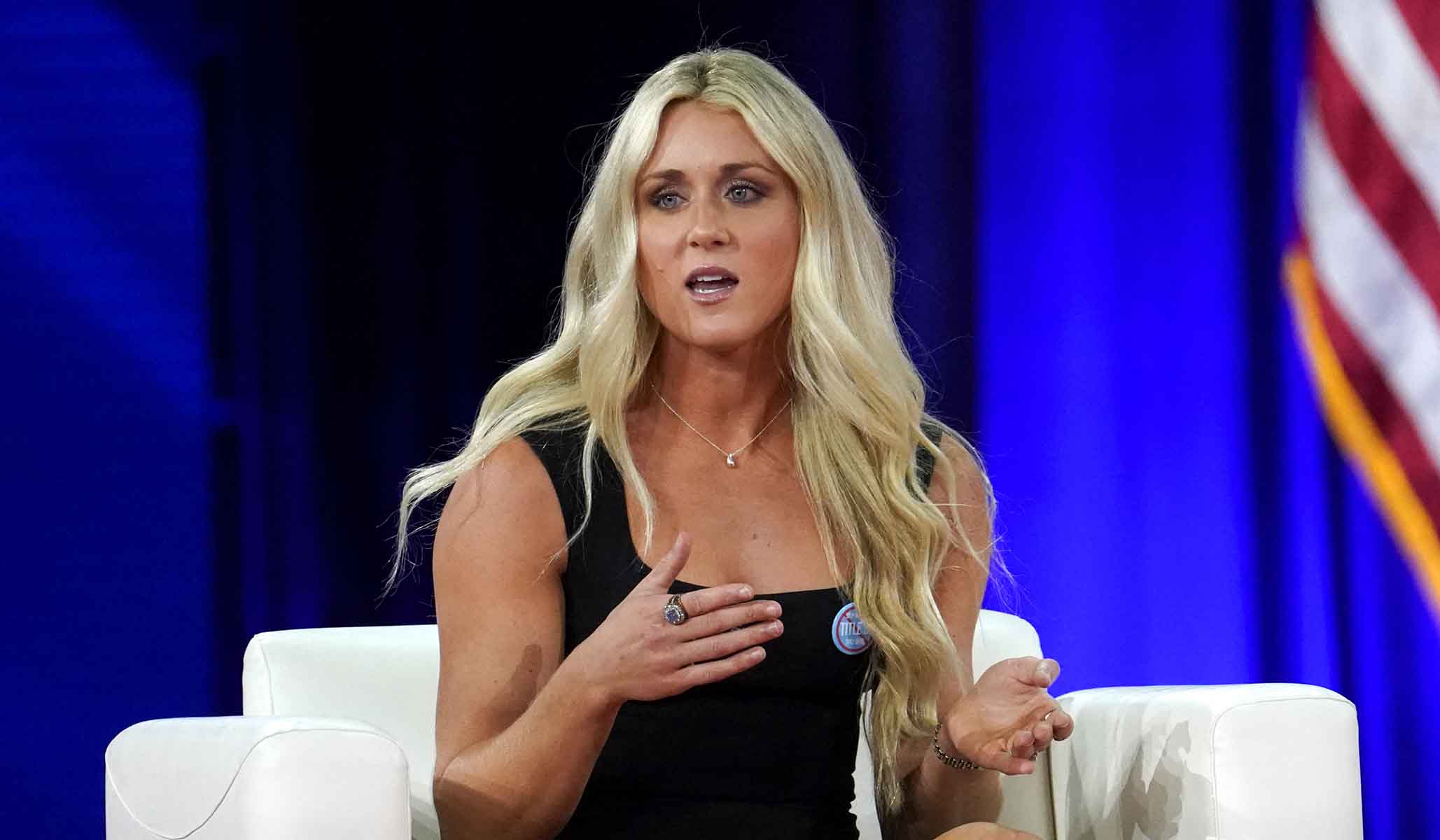
Riley Gaines: How One Athlete Became the Lightning Rod of AI, Sports, and the Gender Debate
Estimated Reading Time: 20 minutes
Key Takeaways
- Riley Gaines has transitioned from an elite swimmer to a major voice in the gender and sports debate.
- The role of AI in amplifying and shaping public debates around sports and gender issues is growing.
- New technologies are impacting fairness and policy-making in sports at a global level.
Table of Contents
- Who Is Riley Gaines?
- Why Riley Gaines Is Trending Again
- How AI Is Affecting the Gender-in-Sports Debate
- Cutting Through the Noise
- Riley Gaines, AI, and the Global Sports Flashpoint
- The Uncomfortable Questions AI Raises
- What’s Next? The Tech Frontier’s Role in Shaping the Debate
- Final Lap: The Conversation You Can’t Dodge
Who Is Riley Gaines? From Pool Legend to Political Firebrand
Riley Gaines was once known for annihilating split times, not headlines. Born in 2000 in Nashville, Tennessee, Gaines became a seven-time Tennessee state swimming champion and swept the 100-yard butterfly all four years in high school (UK Athletics). Standing at 5’5″, she went on to swim for the University of Kentucky, earning All-American status and making her name as one of the fiercest competitors in the water.
In 2022, everything changed. Gaines found herself sharing a podium—and global spotlight—with Lia Thomas, the first openly transgender NCAA Division I champion. To some, Gaines’ subsequent activism was an act of rebellion against a system she believed was unfair. To others, it marked her as a leader for protecting women’s sports. The debate was no longer just in the pool; it was everywhere, and it was personal.
Today, Riley Gaines is:
- The host of the “Gaines for Girls” podcast, which rallies for what she calls “women’s single-sex spaces” (Instagram)
- A high-profile contributor to Turning Point USA and a best-selling author (X/Twitter)
- One of the most visible, vocal critics of transgender athletes competing in women’s leagues (Wikipedia).
The Game Changer: Why Riley Gaines Is Suddenly Trending Again
If Riley Gaines has always been controversial, why is she top of the global zeitgeist right now? The spark: a fiery, very public collision with Olympic gymnastics icon Simone Biles. Biles, herself a symbol of athletic perseverance and mental health advocacy, called Gaines ‘sick’ on X (formerly Twitter) after fresh comments Gaines made about trans women in sports (NBC News). Gaines, in response, doubled down, citing not only policy but personal trauma—referring pointedly to the Larry Nassar abuse scandal that rocked U.S. Gymnastics (NY Post) (Sheinelle Jones: Navigating Grief, Humanity, and the Future of Media in the AI Age).
The result was a digital firestorm:
- Millions of reposts, shares, and memes, with algorithms on X, Instagram, YouTube, and TikTok pushing Riley Gaines into trending topics worldwide.
- Mainstream news outlets (CBS, NBC, Fox, New York Post) running primetime segments dissecting every word in real time.
- A surge in ‘related searches’ and interest in keywords like “Riley Gaines Wikipedia,” “Riley Gaines Simone Biles,” and even “Riley Gaines 5th place”—proving that just one headline can ripple through the entire AI-powered information ecosystem (Taylor Swift and the AI Revolution: Navigating the Deepfake Battleground of Our Generation).
How AI Is Pouring Gasoline on the Gender-In-Sports Debate
Artificial intelligence now mediates almost every part of the conversation around Riley Gaines and the gender-in-sports issue—often invisibly. Here’s how:
- Algorithmic Amplification: Social media platforms use deep learning to determine which stories climb and which fade. The more polarizing the topic (and Riley Gaines is as polarizing as they come), the more the algorithm pushes it into feeds, often encouraging outrage and engagement over nuance (The Atlantic).
- AI-Driven Fact-Checking—and Misinformation: Bots and automated fact-checkers sweep in to correct (or confuse) viral posts. When Gaines or critics share data about trans athlete performance or NCAA policy, AI systems decide which facts get labels and which don’t (Reuters Institute) (Inside the Algorithmic Black Box: Why Explainable AI is a Legal Necessity in 2025).
- Personalized News Bubbles: If you watch one Riley Gaines video, get ready for a storm of related content, thanks to machine learning systems that infer your preferences—and then seal you inside them (MIT Technology Review).
The AI “Referee”: Machine Learning’s Role in Defining Fairness
The question Riley Gaines raises isn’t just who should compete in women’s sports—it’s what “fairness” means when definition itself becomes a moving target, scrutinized through the lens of both science and political discourse.
- Performance Data Analysis: AI now scrutinizes athletes’ biometrics, hormone levels, historical race times, and more to help governing bodies draft inclusion/exclusion policies. Sometimes, AI-driven models are used to “predict” whether a trans athlete has an “unfair” advantage over competitors (Science).
- Policy Simulation: Some sports bodies are experimenting with AI tools to simulate the outcome of different rule changes, attempting to forecast the impact on real competitions (Nature).
- Deepfakes & “Synthetic Interviews”: The digital arms race includes AI-generated videos and interviews, complicating the discourse around real vs. fake statements—sometimes even attributed to figures like Gaines (Elias Rodriguez: The Viral AI Manhunt That Redefined Global Crime and Technology).
Viral, Policy, or Hype? Cutting Through the Noise
What makes the Riley Gaines phenomenon different from past sports controversies? It’s not just the level of celebrity involvement or the raw emotional stakes. It’s how AI, algorithmic attention, and vast data fields are fundamentally changing how the debate is conducted.
- Algorithmic Partisanship: What you see isn’t what everyone else sees. AI sorts, filters, and curates which versions of the story trend—and which get buried. One user’s feed celebrates Gaines as a feminist champion; another’s paints her as intolerant. The result: echo chambers that polarize rather than inform (Reuters Institute).
- Weaponized Virality: Celebrity spats (Simone Biles vs. Riley Gaines) get exponential reach, distilling nuanced issues into 280-character soundbites.
- Real-World Impact: Legislators and policymakers—often influenced by AI-massaged headlines—are introducing bills at record pace. In 2024 alone, over 20 U.S. states proposed new rules for trans athlete participation, often citing stories of athletes like Gaines as the emotional centerpiece (CBS News).
- Erosion of Trust: AI-powered deepfakes and targeted misinformation attacks are muddying the narrative. Viral but fake interviews and quotes have circulated, attributed to both Gaines and her critics.
Riley Gaines, AI, and the Global Sports Flashpoint
Let’s not kid ourselves: the stakes here go far beyond the NCAA. The Gaines effect is global.
- Women’s Sports in Flux: International Olympic Committee: AI analytics and new biological testing protocols are factoring into updated eligibility guidelines, as federations worldwide look to “predict” gender advantage.
- Grassroots impact: Local schools and clubs, often with rudimentary data, look to viral cases like Gaines’ for cues on policy.
The Data Arms Race
Startups and researchers are using advanced AI to analyze physiological data, aiming to arm governing bodies with “objective” metrics. Critics argue this can reinforce bias or overlook the lived realities of athletes.
- Athletes’ digital lives are now under scrutiny, with every post, photo, and comment injected into the AI-policed search ecosystem—fueling or quelling controversy at global speed (AI Whisper Networks Redefine Startup Power and Influence).
The Uncomfortable Questions the AI Era Forces Us to Face
The debate over Riley Gaines is about so much more than sportsmanship versus inclusion. The way artificial intelligence is enmeshed in the battle exposes new frontiers of discomfort and challenge.
- Who owns the definition of “fairness”—humans or algorithms?
- Can AI-driven rules keep up with the rapid evolution of both athlete identities and public sentiment?
- When algorithms reward outrage over dialogue, are we getting smarter or more entrenched?
And perhaps most pressingly:
- How do we ensure that real athletes—Gaines, Thomas, Biles, and countless others—are heard in a world where AI can amplify, distort, or erase entire realities at the touch of a button?
What’s Next? The Tech Frontier’s Role in Shaping the Debate
This is more than a culture war; it’s a tech arms race.
- Watch for smarter, subtler AI content moderation, with platforms under pressure to surface “trustworthy” sources while respecting free speech.
- Expect more “explainable AI” tools—algorithms that show how they’re prioritizing some stories over others, and why.
Prepare for a new generation of athlete activists (think: Riley Gaines, Lia Thomas, and the inevitable viral names of tomorrow), armed with data, AI-powered reach, and direct lines to millions of followers.
If sports were once about what happened in the water, on the field, or in the gym, the coming years will see battles fought across networks, policies, and every feed that AI can touch.
Final Lap: The Conversation You Can’t Dodge
Riley Gaines is not just a person, not just a headline, and not just an activist. She’s a prism—splitting global light across debates that are as old as the Olympics and as new as the latest AI update.
- Genuine questions about who belongs and what’s fair
- A world where every click, post, and algorithmic twist shapes the next policy—and the next public reaction
- Technology’s relentless march, demanding that we ask not just “can we?” but “should we?”
So—where do you stand?
- Do you see Riley Gaines as a defender of sports’ integrity or a gatekeeper of exclusion?
- Should AI arbitrate fairness, or should humans always hold the whistle?

